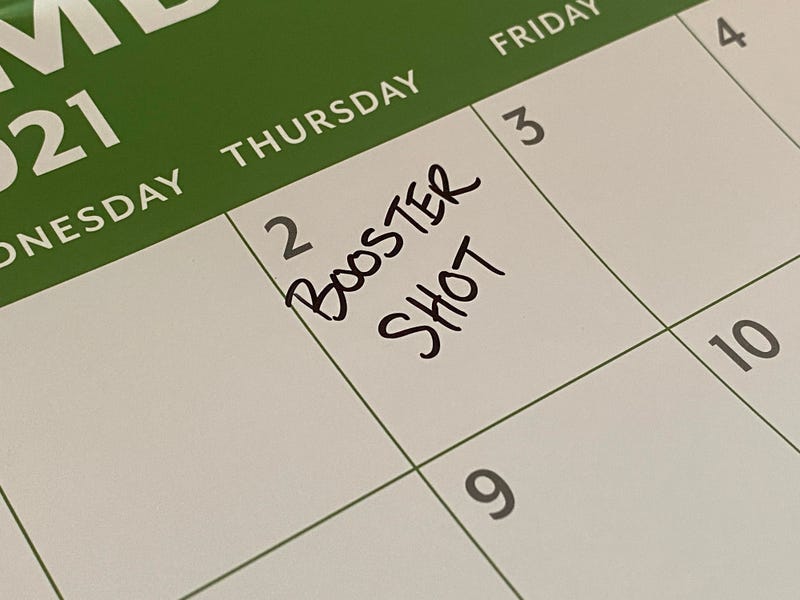
Will we or won’t we need to get a fresh COVID-19 shot every year like we do for flu shots? According to experts, the question hasn’t been settled yet.
A U.S. Food and Drug Administration meeting scheduled next month is expected to address the need for boosters going forward. Representatives from the U.S. Centers for Disease Control and Prevention and the National Institutes of Health are going to participate, the administration said Monday.
As for now, some experts say we’ll need the yearly boosters, while others think it is too soon to tell.
Experts who think we should expect annual jabs
“I think it is heading towards this vaccine becoming an annual vaccine, at least for the foreseeable future,” Scott Gottlieb, a former FDA commissioner told “Face the Nation” Sunday.
Dr. Archana Chatterjee, dean of the Chicago Medical School at Rosalind Franklin University, also thinks that regular vaccinations may be warranted, according to CNN.
“In order to keep it under control, we likely will need some form of periodic vaccination,” she said Monday, per the outlet. “Now, whether that’s annual or every two years or every five years, we don't really know that yet. I think that that will emerge as we gather more data.”
Even though more data is needed, Chatterjee – who is also a member of the FDA Vaccines and Related Biological Products Advisory Committee – believes it is clear that more people will be getting COVID-19 booster shots. Her opinion does not reflect that of the FDA, CNN said.
We shouldn’t expect SARS CoV-2 to go away, said Dr. Abraar Karan, an infectious disease fellow at Stanford University who was also cited by the outlet. He said we should expect recurrent surges and decreased immunity over time.
“We will need boosters again in the future – probably later this year is my guess – and they will need to be tweaked more closely to what the most recent strain is that's spreading,” he said. “We do this, obviously, annually for flu. ... But flu has a more predictable seasonality to it.”
“Given how safe the vaccines are and how effective they are, I think it probably does make sense for people to get a booster, and the most convenient would be once a year,” said Dr. Otto Yang, an infectious disease specialist at UCLA, according to the Kaiser Family Foundation.
Experts who think we might not need an annual shot
While Pfizer CEO Albert Bourla also said March 13 that all Americans would likely need a need a second booster shot, John Moore, professor of microbiology and immunology at Weill Cornell Medical College, thinks such statements could put pressure on the Biden administration before there is adequate time to assess scientific evidence.
Both Pfizer and Moderna, pharmaceutical companies that product the two mRNA COVID-19 vaccines approved for use in the U.S., have applied for the FDA to approve a second booster dose of their vaccines.
“The last thing we need is to have corporate CEOs in March saying this is what you need in December because ‘we know,’” Moore said. “How do you know?”
“I don’t think the entire population is going to need annual vaccines,” Soumya Swaminathan, the chief scientist at the World Health Organization, told The Atlantic last month. She said some exceptions could be vulnerable populations such as immunocompromised people and older individuals.
Swaminathan recommends a COVID-19 monitoring program to help bolster the impact of vaccines and booster doses.
Indeed, Stanley Perlman, a coronavirus expert at the University of Iowa said that vaccines will never prevent all infections.
“We’re coming off two years where we treated this virus like smallpox, isolating anyone with mild illness, even asymptomatic people,” he said. “That’s going to have to change. Because neither vaccination nor natural infection is going to protect you from mild illness for a longer period of time.”
LISTEN on the Audacy App
Sign Up and Follow Audacy
Facebook | Twitter | Instagram
